Center for Particle Cosmology Spotlight

Mathew Madhavacheril and Co-Researchers Receive Funding from RCSA for Scialog Initiative
A team including Mathew Madhavacheril, an assistant professor of physics and astronomy in the School of Arts & Sciences, is among the first-ever recipients of funding from a new initiative supporting an ambitious 10-year project. The undertaking aims to answer pressing questions about dark energy, dark matter, and supermassive black holes, among other space phenomena.
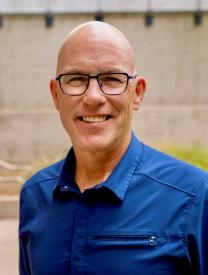
Congratulations to Professor Mark Devlin
Great news!
Professor Mark Devlin has been elected 2025 Member of the National Academy of Sciences! Election to the NAS recognizes Professor Devlin's stellar contributions to Cosmology and Astrophysics.
Please join us in congratulating him for this truly well-deserved honor!
For a listing of this year’s winners see: https://www.nasonline.org/news/2025-nas-election/
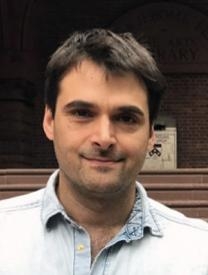
Appointment of Professor Justin Khoury as co-Director of the Center for Particle Cosmology
The Center for Particle Cosmology would like to announce an important leadership change. Professor Mark Trodden, who has co-directed the center since its founding in 2009, was recently announced as the new Dean of the School of Arts and Sciences, and has decided to step down as co-Director, effective May 1, 2025. Professor Trodden will, however, continue as a key member and contributor to the Center.

Congratulations - Dr. Monica Jinwoo Kang!
We are pleased to announce that the 2025 AKPA Outstanding Young Researcher Award (OYRA) will be awarded to
Dr. Monica Jinwoo Kang (Center of Particle Cosmology Postdoctoral Fellow, University of Pennsylvania) for her prolific and creative research contributions to string theory, quantum field theory, and mathematical physics as well as for providing excellent mentorship to younger generations of physicists.
Read more about the AKPA Award here.
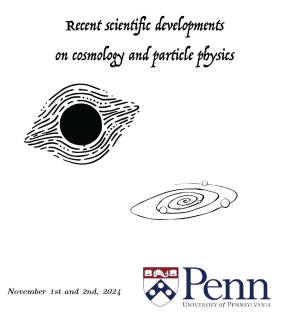
Recent Scientific Developments on Cosmology and Particle Physics
A collaborative workshop bringing together participants from nearby universities to advance research in cosmology and particle physics.
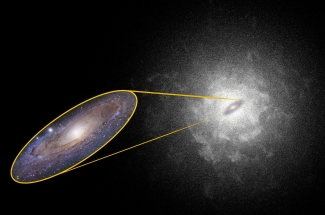
NASA’s Roman Space Telescope will investigate the history of galaxies
Robyn Sanderson and collaborators are unearthing the history of the universe’s formation by looking for clues that reveal its ‘galactic fossil record.’
Yhe universe is a dynamic, ever-changing place where galaxies are dancing, merging, and changing appearance. Looking ever deeper into the universe, astronomers see galaxies at earlier stages in their lives. Unfortunately, because these changes take millions or billions of years, telescopes only provide snapshots, squeezed into a human lifetime.
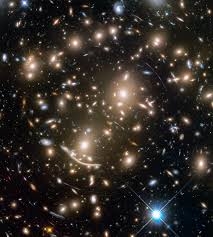
Strange observations of galaxies challenge ideas about dark matter
ScienceNews quotes Bhuvnesh Jain in their recent article about dark matter.
“I think it’s a real stretch to say that one can do away with dark matter, because the lines of evidence [for it] are so numerous,” says Bhuvnesh Jain, a cosmologist at the University of Pennsylvania.
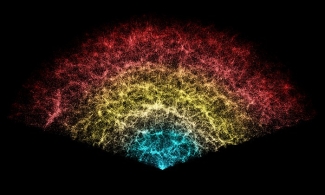
The dominant model of the universe is creaking: Dark energy could break it apart
The Economist quotes Bhuvnesh Jain in their recent science and technology article.
Devlin Lab researchers publish study detailing their work on Large Aperture Telescope Receiver
Ningfeng Zhu, Ph.D. candidate in the Department of Physics and Astronomy and member of the lab of Mark Devlin, Reese W.
